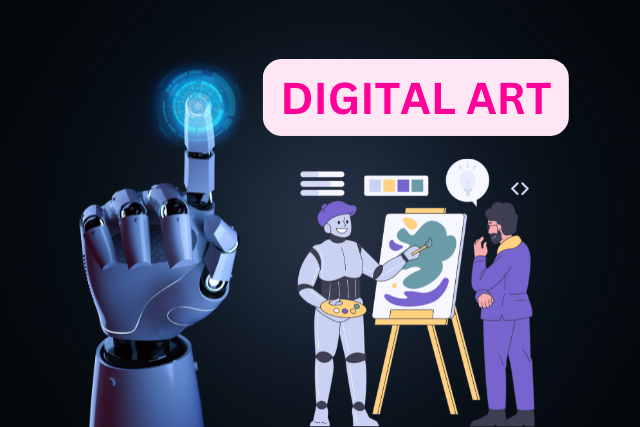Top 10 AI Tools for Social Media Management

Managing social media effectively can be challenging, especially when constantly engaging with audiences, creating content, and analysing performance.
AI-powered tools have transformed social media management by automating tasks, providing insights, and enhancing engagement strategies. This article explores the top 10 AI tools for social media management, detailing their features, pros, and cons.
Importance of AI in Social Media Management
AI enhances social media management by automating repetitive tasks such as scheduling posts, monitoring engagement, and analyzing data. This allows social media managers to focus on strategy and creative content.
AI can provide insights into audience behavior, optimize ad spending, and suggest the best times to post, improving overall social media performance.
Benefits of Using AI in Social Media Management
- Efficiency: Automates repetitive tasks, saving time and effort.
- Analytics: Provides data-driven insights into audience behavior and content performance.
- Engagement: Enhances engagement through personalized content and real-time interactions.
- Optimization: Optimizes posting schedules, ad spending, and content strategies.
Top 10 AI Tools for Social Media Management
1. Hootsuite
Hootsuite is a comprehensive social media management platform that helps businesses and individuals manage multiple social media accounts from one dashboard. With AI-powered features, Hootsuite streamlines scheduling, content curation, and analytics.
Hootsuite’s scheduling feature allows users to plan posts across various social media platforms, ensuring consistent and timely content delivery. The AI-driven content suggestions help users curate relevant and engaging posts.
Hootsuite provides robust analytics and reporting tools that track performance metrics, helping users understand what works and what doesn’t. The social listening feature monitors conversations and mentions, providing valuable insights into audience sentiment and trends.
Features:
- Scheduling and auto-posting across multiple platforms
- AI-driven content suggestions
- Analytics and reporting for social media performance
- Social listening and monitoring
Pros:
- Supports a wide range of social media platforms
- Comprehensive analytics and reporting
- User-friendly interface
- Robust content scheduling and management features
Cons:
- Can be expensive for small businesses
- Advanced features require higher-tier plans
2. Sprout Social
Sprout Social is a powerful social media management tool that uses AI to enhance social media engagement, content creation, and analytics. It is known for its intuitive interface and robust features.
Sprout Social offers comprehensive scheduling and publishing tools that allow users to plan and post content across multiple platforms seamlessly. Its AI-powered social listening and sentiment analysis tools provide deep insights into audience behavior and trends, helping users tailor their strategies accordingly.
The platform also offers detailed analytics and performance reports, making tracking key metrics and optimising social media efforts easy. Integration with CRM tools enhances customer relationship management by consolidating interactions in one place.
Features:
- Social media scheduling and publishing
- AI-powered social listening and sentiment analysis
- Detailed analytics and performance reports
- CRM integration for better customer relationship management
Pros:
- Excellent social listening and sentiment analysis
- Intuitive and easy-to-use interface
- Comprehensive analytics and reporting
- Strong customer support
Cons:
- Higher pricing compared to other tools
- Limited features in lower-tier plans
3. Buffer
Buffer is a popular social media management tool that offers a simple and efficient way to schedule posts, track performance, and manage multiple social media accounts. Its AI-driven features enhance content scheduling and analytics.
Buffer’s easy-to-use interface allows users to schedule posts across different social media platforms, ensuring consistent and timely content delivery. The AI-powered content recommendations help users curate engaging posts.
Buffer also provides analytics and performance tracking tools that offer insights into post engagement and reach. Team collaboration features enable efficient management of social media accounts by multiple users, making it ideal for businesses and agencies.
Features:
- Social media post scheduling and publishing
- AI-powered content recommendations
- Analytics and performance tracking
- Team collaboration tools
Pros:
- Easy-to-use interface
- Affordable pricing plans
- Strong focus on content scheduling and optimization
- Good customer support
Cons:
- Limited advanced features
- Basic analytics compared to competitors
4. Agorapulse
Agorapulse is a comprehensive social media management tool that combines scheduling, engagement, and analytics with powerful AI features. It is known for its robust social inbox and detailed analytics.
Agorapulse’s social media scheduling and publishing tools allow users to plan and post content across various platforms. The AI-powered social listening and sentiment analysis tools provide deep insights into audience behavior and trends.
Agorapulse’s social inbox consolidates all interactions, making managing conversations and engaging with followers easy. The platform also offers detailed analytics and reporting tools that track performance metrics, helping users optimize their social media strategies.
Features:
- Social media scheduling and publishing
- AI-powered social listening and sentiment analysis
- Comprehensive social inbox for managing interactions
- Detailed analytics and reporting
Pros:
- Excellent social inbox for managing interactions
- Strong analytics and reporting features
- User-friendly interface
- Good customer support
Cons:
- Higher pricing for advanced features
- Can be complex for beginners
5. Zoho Social
Zoho Social is a powerful social media management tool that offers a range of AI-driven features for scheduling, monitoring, and analyzing social media performance. It is part of the larger Zoho suite of business tools.
Zoho Social’s scheduling and publishing tools enable users to plan and post content across multiple social media platforms. The AI-powered content recommendations help users curate relevant and engaging posts.
Social listening and monitoring tools track conversations and mentions, providing insights into audience sentiment and trends. Zoho Social also offers detailed analytics and performance reports, helping users understand the impact of their social media efforts.
Features:
- Social media scheduling and publishing
- AI-powered content recommendations
- Social listening and monitoring
- Analytics and performance reports
Pros:
- Integrates well with other Zoho tools
- Affordable pricing plans
- User-friendly interface
- Strong analytics and reporting
Cons:
- Limited features in basic plans
- Customer support can be slow
6. Later
Later is a visual social media scheduler that focuses on Instagram but also supports other platforms. It uses AI to optimize post scheduling and provides insights into performance and engagement.
Later’s visual content calendar allows users to schedule posts by simply dragging and dropping media files. The AI-powered best time to post recommendations help users optimize their posting schedules for maximum engagement.
Later also provides analytics and performance tracking tools that offer insights into post engagement and reach. The platform’s link in bio feature drives traffic from Instagram to other web pages, enhancing overall social media effectiveness.
Features:
- Visual content calendar for scheduling posts
- AI-powered best time to post recommendations
- Analytics and performance tracking
- Link in bio feature for driving traffic
Pros:
- Excellent for visual content scheduling
- User-friendly interface
- Affordable pricing plans
- Strong focus on Instagram management
Cons:
- Limited features for non-visual platforms
- Basic analytics compared to competitors
7. SocialBee
SocialBee is a social media management tool that helps users schedule and publish content, manage multiple accounts, and analyze performance. It uses AI to automate content recycling and optimize posting schedules.
SocialBee’s content scheduling and auto-posting tools enable users to plan and post content across various social media platforms. The AI-powered content recycling feature ensures that evergreen content is regularly reposted, maximizing its reach.
SocialBee also provides analytics and performance tracking tools that offer insights into post engagement and reach. The platform’s social media engagement tools help users interact with their audience and build stronger connections.
Features:
- Content scheduling and auto-posting
- AI-powered content recycling
- Analytics and performance tracking
- Social media engagement tools
Pros:
- Affordable pricing plans
- Strong focus on content recycling
- User-friendly interface
- Good customer support
Cons:
- Limited advanced features
- Basic analytics compared to competitors
8. Sendible
Sendible is a comprehensive social media management tool that offers AI-powered features for scheduling, monitoring, and analyzing social media performance. It is known for its robust integration capabilities and detailed reporting.
Sendible’s social media scheduling and publishing tools allow users to plan and post content across various platforms. The AI-driven content recommendations help users curate relevant and engaging posts.
Sendible’s social listening and monitoring tools track conversations and mentions, providing insights into audience sentiment and trends. The platform also offers detailed analytics and performance reports, helping users understand the impact of their social media efforts.
Features:
- Social media scheduling and publishing
- AI-driven content recommendations
- Social listening and monitoring
- Detailed analytics and performance reports
Pros:
- Strong integration capabilities
- Detailed analytics and reporting
- User-friendly interface
- Good customer support
Cons:
- Higher pricing for advanced features
- Can be complex for beginners
9. CoSchedule
CoSchedule is a marketing suite that includes a powerful social media management tool. It uses AI to optimize social media schedules and provide insights into content performance and engagement.
CoSchedule’s social media scheduling and publishing tools allow users to plan and post content across various platforms. The AI-powered best time to post recommendations help users optimize their posting schedules for maximum engagement.
CoSchedule also provides analytics and performance tracking tools that offer insights into post engagement and reach. The platform’s team collaboration tools enable efficient management of social media accounts by multiple users, making it ideal for businesses and agencies.
Features:
- Social media scheduling and publishing
- AI-powered best time to post recommendations
- Analytics and performance tracking
- Team collaboration tools
Pros:
- Integrates well with other marketing tools
- User-friendly interface
- Strong focus on content scheduling and optimization
- Good customer support
Cons:
- Higher pricing for advanced features
- Limited features in basic plans
10. MeetEdgar
MeetEdgar is a social media management tool that focuses on automating content scheduling and recycling. It uses AI to suggest and recycle evergreen content, ensuring a consistent posting schedule.
MeetEdgar’s content scheduling and auto-posting tools enable users to plan and post content across various social media platforms. The AI-powered content recycling feature ensures that evergreen content is regularly reposted, maximizing its reach.
MeetEdgar also provides analytics and performance tracking tools that offer insights into post engagement and reach. The platform’s social media engagement tools help users interact with their audience and build stronger connections.
Features:
- Content scheduling and auto-posting
- AI-powered content recycling
- Analytics and performance tracking
- Social media engagement tools
Pros:
- Strong focus on content recycling
- Affordable pricing plans
- User-friendly interface
- Good customer support
Cons:
- Limited advanced features
- Basic analytics compared to competitors
Conclusion
AI tools have significantly enhanced social media management by automating tasks, providing insights, and improving engagement strategies.
Whether you’re a professional social media manager or a small business owner, these AI-powered tools offer features that can save you time, improve your workflow, and elevate the quality of your social media content. By leveraging these tools, you can focus more on strategy and creative content, boosting your social media performance.
FAQs
What are AI tools for social media management?
AI tools for social media management use artificial intelligence and machine learning algorithms to automate and enhance various aspects of managing social media accounts, such as scheduling posts, monitoring engagement, and analyzing performance.
How can AI improve social media management?
AI can improve social media management by automating repetitive tasks, providing data-driven insights into audience behavior and content performance, enhancing engagement through personalized content, and optimizing posting schedules and ad spending.
Are AI social media management tools suitable for beginners?
Yes, many AI social media management tools are designed to be user-friendly and accessible to beginners. Tools like Buffer, Later, and SocialBee offer intuitive interfaces and automated features that make managing social media accounts simple and efficient.
Can AI tools replace human social media managers?
While AI tools can automate many aspects of social media management, they are not likely to replace human social media managers entirely. Creativity, expertise, and decision-making are still crucial for developing effective social media strategies. AI tools are best used to complement and enhance the work of social media managers.
Are there free AI social media management tools available?
Yes, some AI social media management tools offer free versions or trials with basic features. For example, tools like Buffer and Hootsuite provide free plans that include essential management tools, making them accessible to users on a budget.






